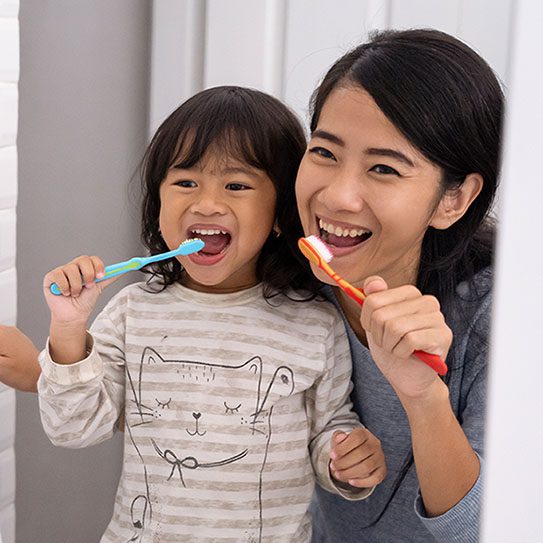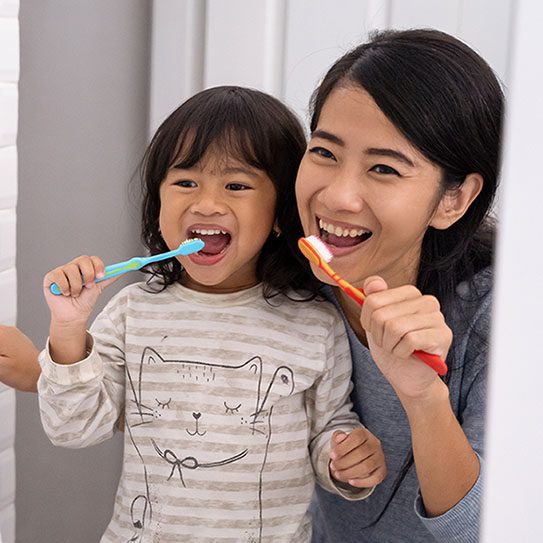
BUILDING STRONG DENTAL health habits early in life sets the stage for a lifetime of healthy smiles. Children who learn to brush, floss, and care for their teeth from a young age are far more likely to maintain those habits into adulthood. As a parent or caregiver, you play a key role in teaching your child how to care for their smile. The good news is that developing these habits can be fun, educational, and rewarding for the whole family.
Start Early
You don’t need to wait for your child to have a full set of teeth to begin teaching dental care. In fact, oral hygiene should start even before the first tooth erupts. Gently wipe your baby’s gums with a clean, damp cloth to remove bacteria and help your child get used to the feeling of oral care. Once teeth begin to appear, switch to a small, soft-bristled toothbrush and a tiny amount of fluoride toothpaste.
By the time your child is around age one, it’s time for their first dental visit. Early visits help your child become comfortable at the dental office and allow the dentist to catch any potential issues before they become bigger problems.
Make Brushing Fun
Young children are more likely to stick to a brushing routine if it feels like playtime instead of a chore. Choose toothbrushes that feature their favorite characters or bright colors, and let them pick one out at the store. Play a two-minute song or use a kid-friendly timer to make sure they brush long enough.
You can also take turns brushing each other’s teeth or use a stuffed animal to demonstrate good technique. These activities make brushing feel interactive and give your child a sense of involvement and control.
Use Positive Reinforcement
Praise and encouragement go a long way in helping kids build confidence in their dental routine. Compliment their brushing technique or create a reward chart where they can earn stickers for brushing twice a day and flossing regularly. You might even consider small, non-food rewards for reaching milestones, such as a special outing or a new book.
Avoid using negative language or punishment related to brushing and flossing. If your child resists, try to understand why and work together to find a solution that makes them feel supported and successful.
Lead by Example
Children are natural imitators, so one of the most effective ways to teach dental habits is by practicing them yourself. Brush and floss your teeth in front of your child and explain what you’re doing and why it matters. When kids see that oral hygiene is important to you, they’re more likely to view it as a normal part of daily life.
Keep Up with Regular Dental Visits
Routine dental checkups help reinforce the importance of oral care and give your child a chance to hear about healthy habits from someone other than a parent. Your dentist or pediatric dentist can offer tips tailored to your child’s needs and help detect any problems early.
Build Healthy Smiles That Last
Teaching your kids good dental habits doesn’t have to be difficult. With patience, consistency, and a little creativity, you can turn daily brushing and flossing into something your child enjoys and takes pride in. Start early, lead by example, and make it a family priority.








